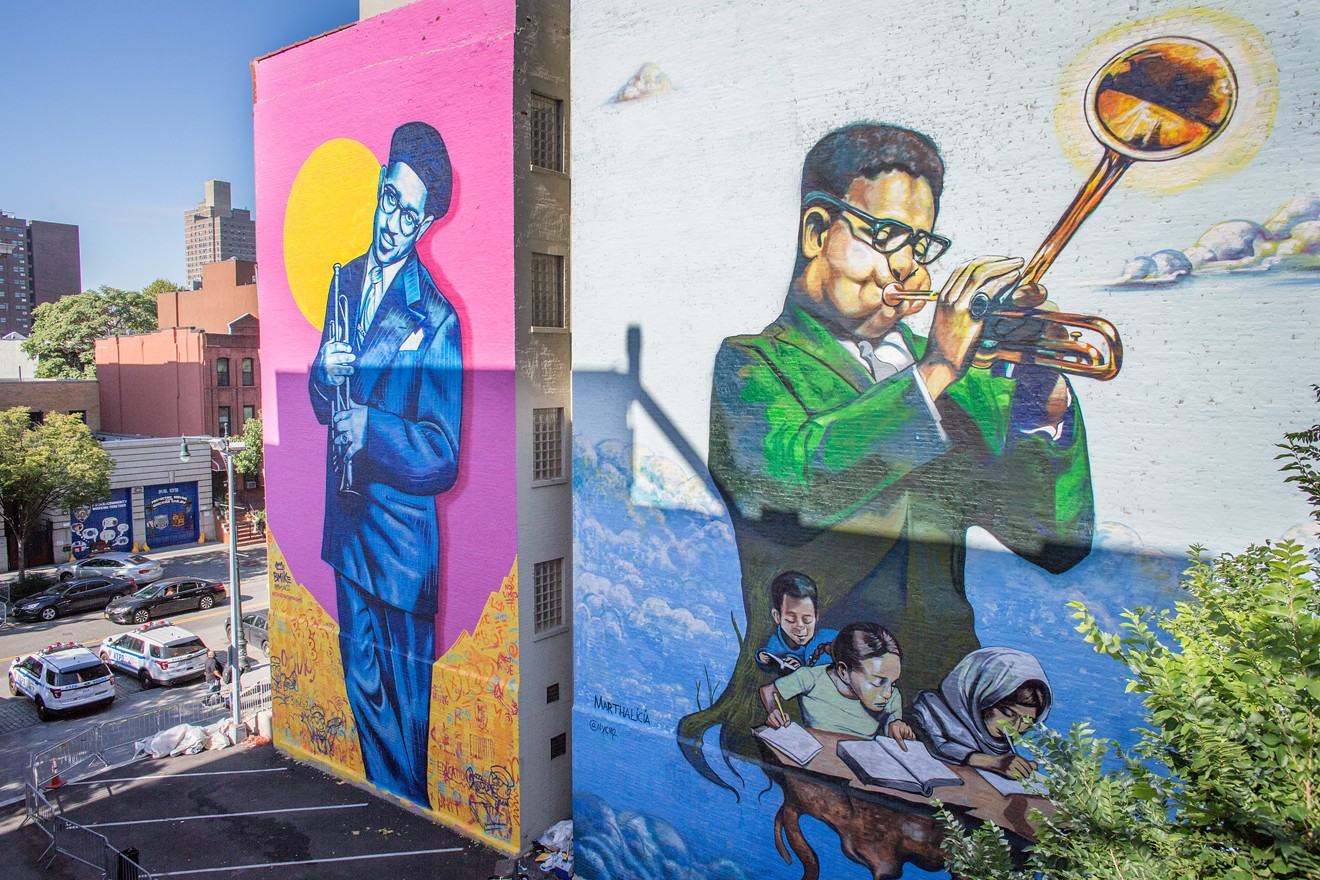This minority of the population is jailed, tortured and killed for innocuous things like accessing higher education, which led to the development of the Education Is Not A Crime campaign by journalist and filmmaker Maziar Bahari after he was jailed in solitary confinement in Iran for four months during a reporting trip.
Now, Bahari has produced Changing The World, One Wall At a Time, a new film about the mural efforts, which is screening at 7 p.m. today at the Angelika Film Center in Dallas.
Viewers will get a behind-the-scenes look at the murals’ creation in the U.K., India, Australia, Brazil and South Africa, as well as in Harlem, which has 20 murals by famous street artists from around the globe.
“We’re connecting different communities that have had to overcome discrimination and education inequity,” says Saleem Vaillancourt, co-producer of the film. “We found there was a great deal of receptivity to the message of the campaign in Harlem.”
Murals espousing the importance of education and tying Harlem’s rich history to the Baha’i faith dot the neighborhood. A pair of murals depicting famed jazz musician Dizzy Gillespie, who converted to Baha’i, adorn two five-story buildings across the street from his plaque on the Harlem walk of fame.
Vaillancourt, who’s in Dallas for the film and will speak after the screening, says the campaign has grown since its formation in 2015 and is as much about education inequity in communities across the world as it is about the Baha’i.
“We screened the film in Sweden with [a] very diverse group of students who are mostly from immigrant and refugee backgrounds," he says. "They brought a lot of perspective about traveling to Sweden and having to adjust to a new school and a new life. Young people really relate to the film because they’re in education and hopefully thinking about going to university.”
The University of Michigan was the site of another screening, which Vaillancourt said had a positive reaction.
“In the immediate sense, hopefully it’s creating more discourse on campus and in schools about education equity as a principle,” he says.
Detroit is another underserved metropolis that Vaillancourt is working with on a grassroots level. He was there for 10 days before flying to Dallas.
“We’re very keen to raise awareness by finding ways to be of service to people here,” he says. “We want to create new educational opportunities for young people in Detroit by developing literacy and promoting self-expression through filmmaking and murals.”
“He rose to his position through education. We really want to celebrate that story. Everybody has the chance to be who they want to be, which shouldn’t be defined by where they come from.” — Saleem Vaillancourt
tweet this
The mural project in Detroit will feature Robert Hayden, who became the first black U.S. poet laureate in 1976 (although the post had a different title at the time). He also converted to the Baha’i faith and was from Detroit.
“He rose to his position through education. We really want to celebrate that story,” Vaillancourt says. “Everybody has the chance to be who they want to be, which shouldn’t be defined by where they come from.”
Dallas has an active Baha’i community, and residents asked to host the film screening here. The University of Texas system and Texas A&M recognize degrees earned by Baha’i students via the Baha’i Institute for Higher Education, an underground university system in Iran that gives college degrees to Baha’i students who are otherwise banned from going to college because of their religion. Several BIHE graduates will be in attendance at the screening.
Conrad High School designed and painted a mural on campus in support of the Not A Crime campaign and education equality. Two years ago, a group of Baha’i students at Tasby Middle School in the Vickery Meadow neighborhood of Dallas contributed a mural to the initiative. Sharing their story is central to Tasby social studies teacher Rodney Mancuso's lesson planning. He’s been teaching his students about the persecution and the campaign for the last three years.
“The Baha’ias in Dallas have been especially enthusiastic,” Vaillancourt said shortly after his plane touched down at Love Field. “And there’s a strong history of Texan educational institutions supporting the Baha'i.”











